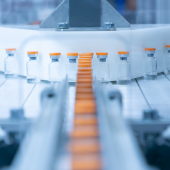How to manage the digital and green transitions
Environmental sustainability and the circular economy are essential factors for reducing ecological impact and using resources responsibly. Strategies, technologies and business models for companies.
Maurizio Cacciamani
In the era of industry 5.0, the evolution of technology is not the only driver of this transformation; strategies and business models are also necessary to help companies to meet the challenges set by the so-called “twin transitions”, that is, the digital one and the green one.
People in the centre
The most important new aspect of the 5.0 Transition with respect to Industry 4.0 lies, in the view of Marco Taisch (Milan Polytechnic, MICS), in the centrality of people, meaning greater attention towards consumers and workers, no longer seen as resources but as individuals. The challenge is to manage production and product systems in a new (now intelligent) way, thanks to the digital transition which is combined with the economic one. One practical example of how to apply the new technologies is MICS’s extended partnership, which sees the participation of 25 parties (13 universities and 12 private companies) that carry out research and operate in leading Made in Italy sectors (clothing, furnishing and mechanics): before they operated completely independently, and now they share research activity (financed with 130 million euros) for the development, for example, of new business models, such as servitisation.
“Digitalised” ice-creams
One example is how new technologies can improve the production of ice-creams while simplifying workers’ tasks at the same time. In the production of ice-cream, the temperature, humidity and ingredients that determine the final quality are controlled thanks to AI, which replicates the experience of workers. AI also helps to produce quality control images, in which defects are shown which the human eye is unable to see. Other interesting applications cited by Michele Barone (Accenture) are plant safety control and predictive maintenance management. All good therefore? Unfortunately, there are problems: companies want to use AI even before having the necessary data or having developed a correct corporate culture, which involves establishing improvement objectives beforehand. Some companies have implemented pilot applications, which have not then been followed up: this is an indication of a lack of focus on continuous improvement. Sustainability is pursued only if there is an economic return due to energy and material saving and to fewer machine stoppages. It’s possible to control consumption through Digital Twins, in the event it is not possible or too expensive to install sensors on the plant.
The technologies offered by the market
With regards to technologies, Tim Enterprise’s offer includes Cloud, Ai, 5G, software, such as chatbot, etc. We should mention that chatbot is a software that simulates and processes human conversations (written or verbal), allowing users to interact with digital devices. Susanna Jean wished to underline the company’s commitment to supporting the activities of a number of Competence Centres that promote technological transfer to small and medium companies.
How to change corporate governance
Digitalisation affects the organisation of companies. This leads to the need to redesign governance to be faster and encourage sharing by improving listening skills. If the organisation changes, the information flows, not only within but also outside the company, also have to change. In this sense, the figure of C.E.O. needs to be the point of reference for the path to digitalisation, and the active and dynamic support of the board of directors is fundamental. And the risks? They exist but, according to Silvia Stefini (Chapter Zero Italy - The Nedcommunity Climate Forum) they need to be managed in a new way, not with analyses of historical data, increasingly less important in a highly dynamic context, but with the drawing up of future scenarios; it’s necessary to create resilience, as the new risks cannot be mitigated so easily.
The Graduate Automation Program
To understand how to interpret the data collected in the company, it’s necessary to learn how to interpret the language of machines. With the technologies of Industry 5.0, it’s possible to implement an enabling language on the machines. In the technological field, Bosch Rexroth has chosen open platforms to support customers also on the search for more efficient and performing solutions, and in the field of robotics, collaborative cobots configurable directly by operators to meet their needs. Lastly, Andrea Secco described the Graduate Automation Program in which Bosch extends an invitation to all those attending the last year of technical university courses; these young people are given the opportunity to enhance their skills in the various sectors of digitalization in order to be able to choose, after graduating, the career path in which they feel they can offer the most.
Conclusions
For Taisch, it’s necessary to make a logical mental leap in the approach to digitalization when considering the future of business. Business management has continuously evolving technological tools available, which support change but have to be managed. Further change will be brought about by the very young digital people of today, much more aware and demanding with regards to sustainability. Internal organisations must change in order to be streamlined, rapid and resilient. The main critical issue for change remains the question of skills: Italy could have them; we know what needs to be provided but, critically, there are problems regarding how to provide them. Too few invest in their own skills.
NOTE. This article has been written freely drawing from the “Una manifattura intelligente, circolare e sostenibile per vincere la sfida delle twin transitions e dell’industria 5.0” (An intelligent, circular and sustainable manufacturing sector to meet the twin transitions and industry 5.0 challenge) round table coordinated by Mauro Bellini (ESG 360), Franco Canna (Innovation Post) and Federica Meta (CorCom) held at the Industry4.0 360SummIT Forum.




















